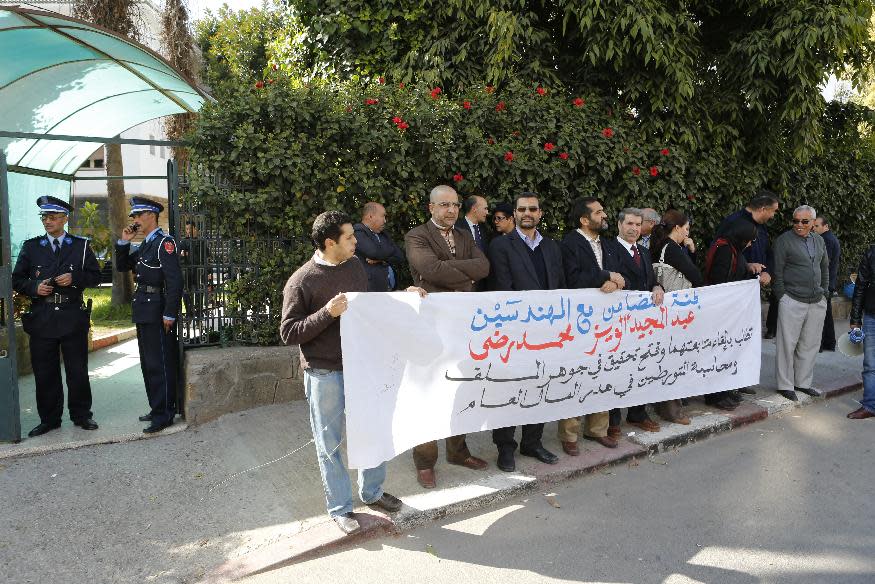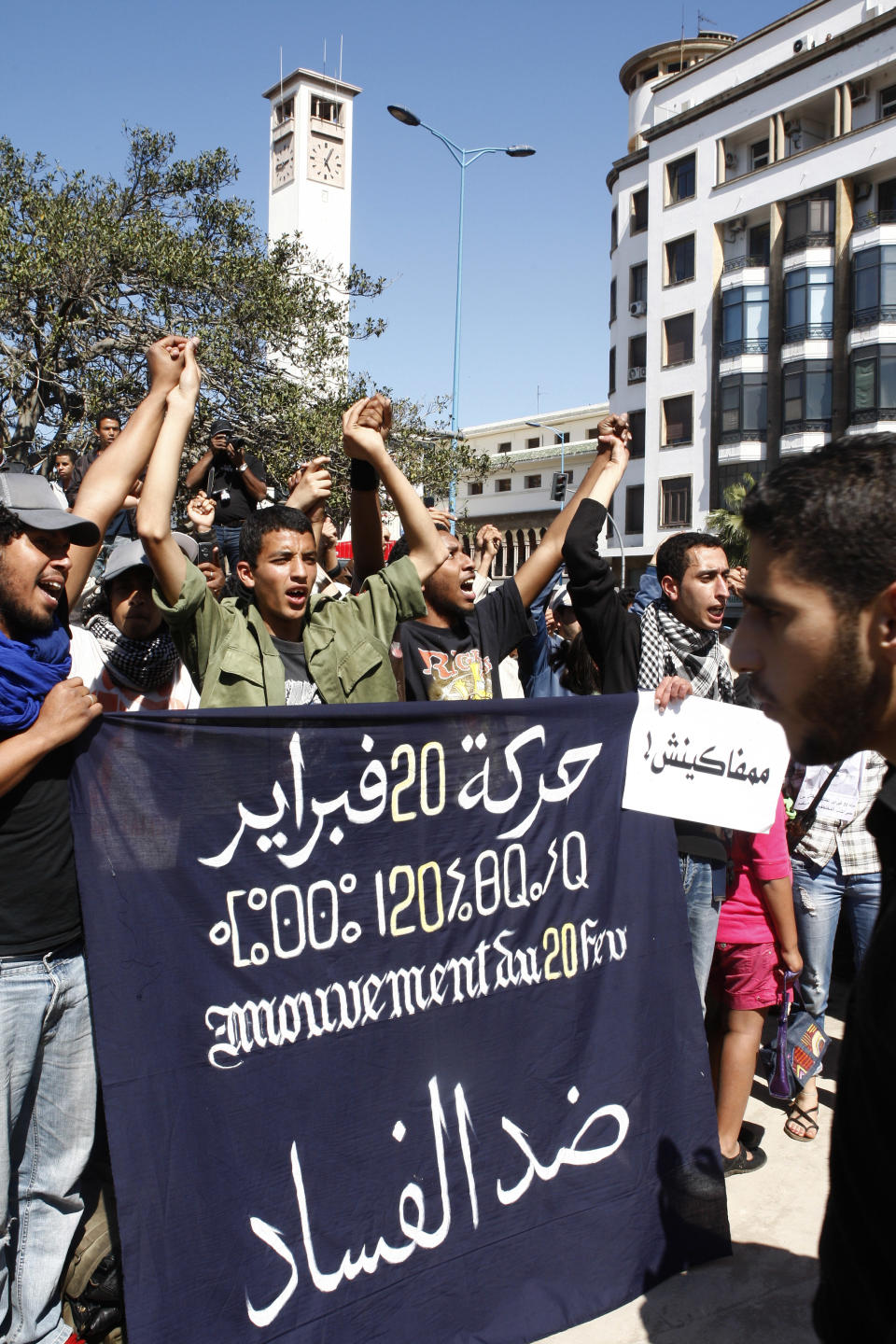Case shows hurdles in fighting Morocco corruption
RABAT, Morocco (AP) — When tens of thousands of Moroccans poured into the streets demanding change in 2011, they were particularly angry about the corruption pervasive at all levels of business and government.
The Islamist party that dominated elections that year ran on an anti-corruption campaign and after taking office in June 2012, announced an investigation into leaked documents that allegedly showed that the former finance minister and the national treasurer authorized salary bonuses for each other.
Two years later, however, the only case to come out of the whole affair is against two civil servants for leaking the documents. The original inquiry announced by Justice Minister Mustapha Ramid has never seen the light of day.
Despite the new government's rhetoric, it has been business as usual for corruption in Morocco.
"It is typical of the impunity that characterizes corruption cases in our country," said Abdessamd Saddouq, the secretary general of Transparency Maroc, which backs the two accused. "Not just because the justice system refuses to investigate the affair, but also that it then targets potential whistleblowers."
In Friday's verdict on the case of the two former Finance Ministry employees, Abdelmajid Alouiz was found guilty and fined $250 with a two month suspended sentence while Mohammed Reda was acquitted on the charge of leaking government documents.
"We reject this trial and are still demanding an inquiry into the affair of the bonuses," said Abdelilah Benabdessalam, a member of the support committee for the two whistleblowers.
The original scandal over the bonuses involved the treasurer, Nourredine Bensouda, a former classmate of Morocco's king, and Salaheddine Mezouar, the former finance minister who is now foreign minister in the coalition government.
Corruption is a serious problem in Morocco. It exists on a grand scale, with ministers accused of illegally buying apartments in Paris or an estimated $25 billion embezzlement scandal in the social security office that has been dragging through the courts for the past decade with no convictions.
It is also a day-to-day reality for Moroccans, whether it's traffic cops shaking down drivers for imagined offenses, or the bribes paid at hospitals or in the halls of government offices to ensure prompt service.
Said Chekrouni, a contractor demonstrating outside the courthouse of the trial in support of the whistleblowers said he was hit up by bureaucrats for bribes so that he could get paid for the three marketplaces he built on a government contract.
"I filed complaints and there is an ongoing trial but now I've come under pressure to drop the matter," he said.
According to Transparency International, more than two-thirds of Moroccans polled called the judiciary, media, police, parliament and public officials corrupt or very corrupt. Sixty-four percent said at least one person in their household had to bribe a policeman in last year.
Abdelaziz Aftati, a leading member of the ruling Islamist Party for Justice and Development, said the justice minister did try to open an inquiry into the bonuses scandal, but was frustrated by national institutions loyal to the "makhzen," the officials and families linked to the king's court who many say truly run the country.
"The deep state resisted the fight against corruption and intervened to change the course of events and launch this unjust trial," he told The Associated Press.
Yet it was a fellow member of the government, Finance Minister Nizar Baraka, who filed the case against the whistleblowers.
Ramid, the justice minister, told AP that following his instructions, "the prosecution opened an investigation into the matter and then decide to close it and I have no further comment on the matter."
Morocco's constitution was amended in 2011 to establish a new freedom of information law to increase transparency and a new commission to fight corruption, but the new laws to implement the changes have yet to be passed.
Abdessalam Aboudrar, head of the new National Agency for the Prevention and Combatting of Corruption, believes the justice system is pursuing corruption but declined to comment on the salary bonuses affair.
"We are still waiting for the passage of the new law giving me power to investigate," he said.
___
Associated Press reporter Paul Schemm contributed to this report.






